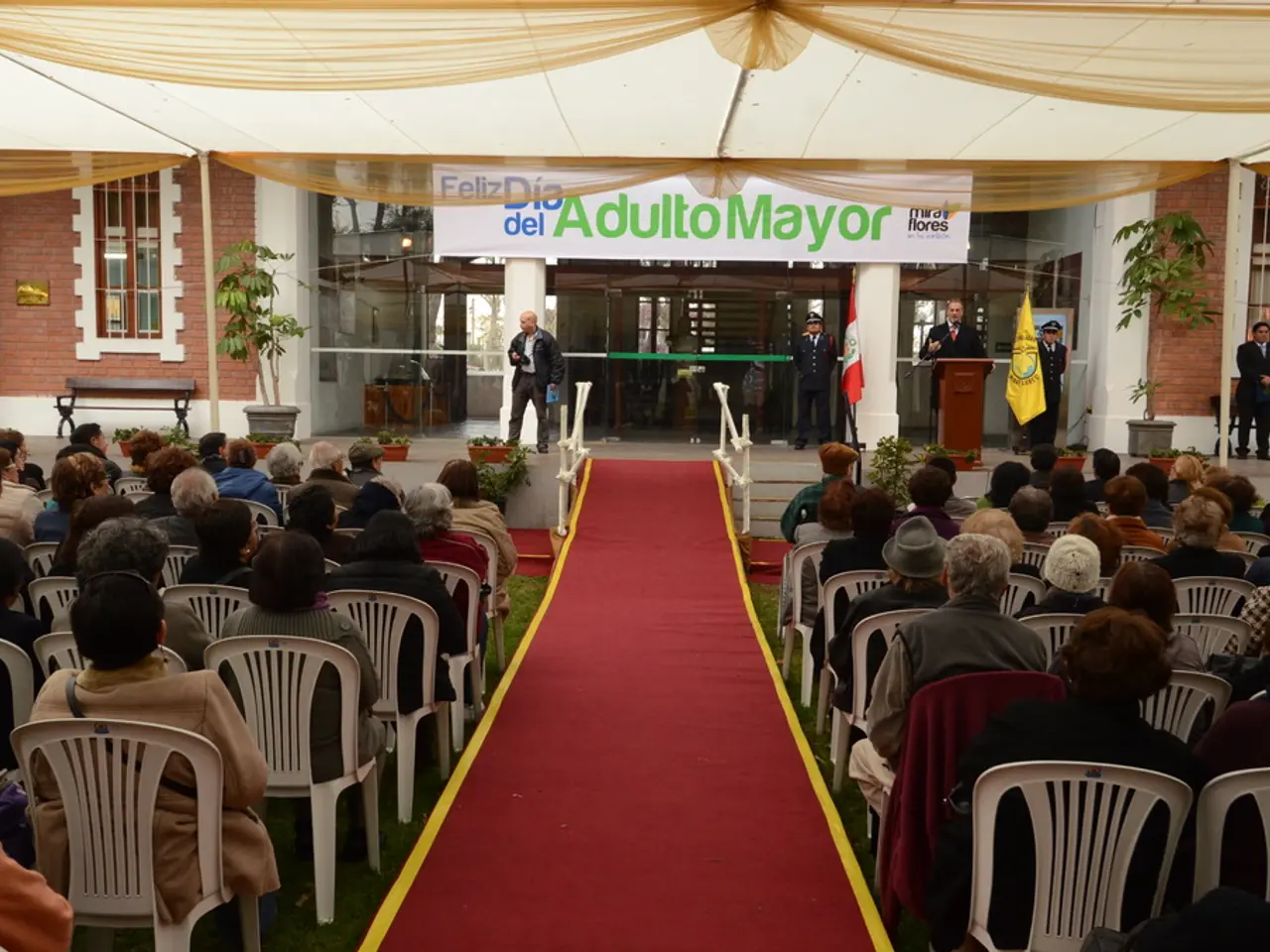- ~ 2 Min Read
A significant number of Germans urges their politicians to take action. - Online Hostility Surges: A Large Proportion of Germans Urge Political Action
Cyberbullying, slurs, threats: A whopping 75% of the German populace has encountered hostile, disrespectful, or aggressive content online. This staggering figure comes from a survey conducted by the Forsa Institute, commissioned by RTL, on Action Day Against Hate and Hate Speech on the Internet, falling on June 18.
Action Against Hate and Hate Speech: June 18
A staggering 71% of participants acknowledged seeing potentially hate-filled content at least occasionally. Younger demographics and frequent social media users are more likely to have experienced such instances.
However, only 16% reported being personally targeted by hate speech online. A sizeable 84% claimed to have never been affected by such attacks. Again, the pattern holds: frequent users and younger people were more likely to have been affected.
Across the board, regardless of personal experiences, an overwhelming 70% of respondents felt that politics was insufficiently fighting internet hate and voiced the need for more decisive action. Even among supporters of the Alternative für Deutschland (AfD), a shocking 55% concurred. Yet, only 14% expressed concern that measures against online hate infringe upon free speech, with a resounding 83% protesting such claims.
For the first time in 2021, the United Nations declared June 18 as the International Day Against Hate Speech. This year, UN Secretary-General António Guterres is emphasizing the potential dangers of the propagation of hate through artificial intelligence and skewed algorithms. "We must counter toxic discourses with positive messages and instill the public with the ability to identify, discard, and protect against hate," he urged.
RTL Deutschland is supporting the Action Day with the initiative "Together. Against Hate and Hate Speech." This week, the channel delves deeper into online hostility's consequences and offers practical solutions. Questions like, , , , and are all being addressed.
Additional Notes: The Forsa Institute conducted the survey for RTL Deutschland from June 10 to 12, 2025. The study is representative, with a +/- 3 percentage point statistical error tolerance.
Keywords: Hate, Hate Speech, Forsa, Polling Institute
Glance into the Dark Web of Hate:Recent findings from the Forsa Institute and RTL shed light on widespread dissatisfaction among the German public with political and platform responses to online hate speech. This discord echoes broader debates on the rise of far-right extremism, as represented by parties like the Alternative for Germany (AfD), identified as a "confirmed right-wing extremist endeavor" by the Federal Office for the Protection of the Constitution (BfV) and branded as overtly racist and anti-Muslim in 2025 [1].
Public outcry extends to political spheres, with polls showing overwhelming majorities regarding the AfD as extreme right-wing [1]. This growing sense of concern towards hate speech and political extremism is reflected in the public's call for stronger action against such groups and their online presence.
In summary, the findings reported by Forsa and RTL reveal:
- A pervasive belief that online hate speech is not adequately addressed by political forces and major platforms.
- Growing demands for increased action against extreme right-wing groups, particularly their presence on the internet.
- Poll results suggesting that almost half of respondents favor banning parties deemed extremist, echoing broader concerns about the escalation of hate speech and political extremism in Germany [1][2].
These insights collectively highlight a climate of tension in Germany regarding online hate speech and political accountability, with citizens exerting increasing pressure for more effective intervention.
[1] Federal Office for the Protection of the Constitution (BfV) classification of the Alternative für Deutschland (AfD)[2] BVMIT survey on German public perceptions of hate speech and its political impact
- Despite the prevalence of hate speech online and the need for action, only 14% of respondents expressed concern that measures against online hate infringe upon free speech, with a resounding 83% protesting such claims.
- The community policy and employment policy of various platforms, including general-news, entertainment, and social-media sectors, are under scrutiny as the public demands stronger action against extreme right-wing groups' online presence.






